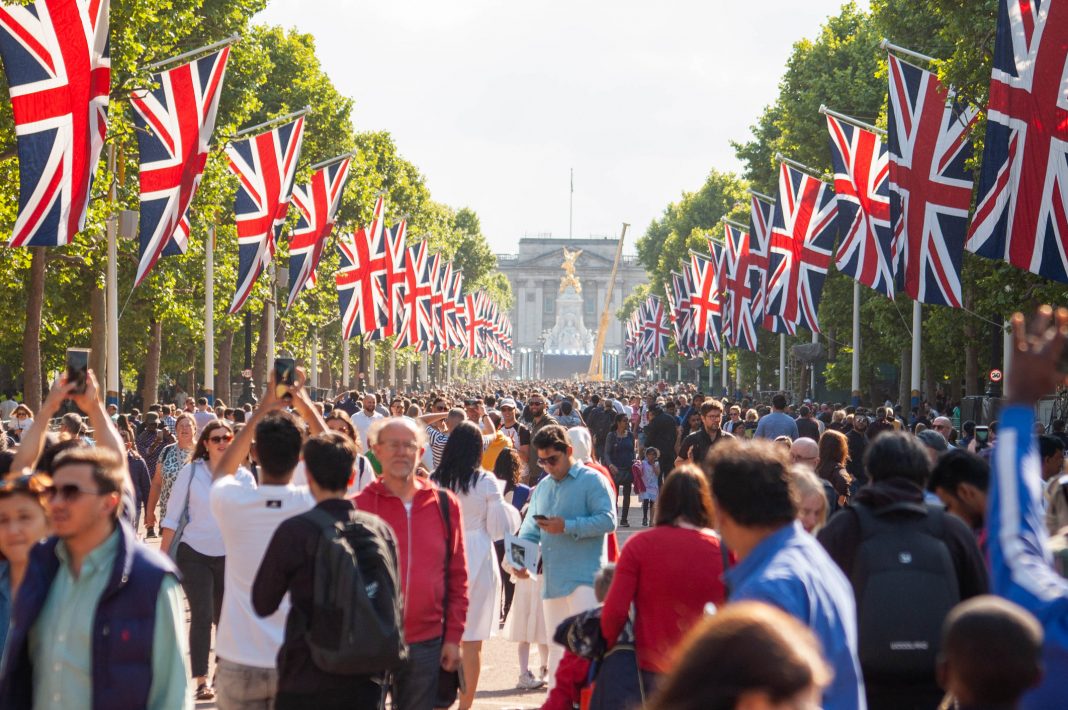Sir Thomas Hughes-Hallett analyses the economic, health, and communal benefit of big events, outlining five key principles for event organisers
To build happier and healthier communities, we desperately need people to come together in a spirit of mutual understanding and cooperation. Largescale events are an essential way of making this happen. If done properly, they can also sow the seed for significant, long-term social and economic impacts.
Well-planned events can act as a catalyst for positive change
At their best, they can be the spark that transforms communities and lives. As well as fostering a sense of belonging, they should leave a legacy of enhanced wellbeing in attendees and host populations – by helping reduce loneliness, improving health outcomes and even potentially delaying clinical interventions. Economically, they should result in regeneration and boosted incomes.
In 2023, the UK is hosting major events, including the coronation of King Charles III and the Eurovision Song Contest. Their potential lasting benefits are huge. Maximising them requires strategic planning and investment. The interests of participants – as well as local people, communities and spaces – must be prioritised.
A decade on from the London 2012 Olympic and Paralympic Games, I’ve chaired an independent inquiry into how to optimise the benefits of events – through Spirit of 2012, the London 2012 legacy charity. Published this week, our inquiry has concluded that there is room for improvement in terms of how the UK approaches its big events.
‘There is room for improvement in terms of how the UK approaches its big events’
While lauded events like the late Queen’s Jubilee, the Commonwealth Games, Coventry’s UK City of Culture and the Women’s Euros mean we might have retained our international reputation as great event organisers, we must now go beyond the creation of an exciting moment in time. Legacy must be at the heart of all our public events from the outset.
Aiming for a step change in the way public events are delivered, our inquiry recommends that their funding should be underpinned by five key principles that we are now calling on policymakers, event organisers and funders to adhere to.

Five key principles for policymakers, event organisers and funders
A clear plan outlining specific legacy benefits
The decision to bid for or host a major event must be driven by its capacity to deliver positive long-term impacts for its participants and host community. No event should be given the go-ahead or any statutory money without a clear plan outlining its specific legacy benefits. They must be embedded in its conception.
Demarcated funding, accountability and governance
The long-term impact of events must be underpinned by demarcated funding, accountability and governance. Event organisers should adopt an approach that views events as long-term projects, with funding allocated accordingly. They should place just as much importance on post-event legacy as on the event itself. A means of measuring this legacy’s success is crucial.
Attention to inclusivity
Greater attention must be paid to inclusivity. When it comes to attracting audiences, event organisers should remove barriers for groups of people who are traditionally less likely to participate in events – like disabled people and those in low social capital neighbourhoods. Whenever possible, organisers should favour public and outdoor spaces, which tend to be more accessible and approachable.
Building common ground across divides
More events need to be designed and curated with a broad range of stakeholders to build common ground across divides. For example, Buckingham Palace and the Department for Culture, Media and Sport should maximise the potential of the coronation to unite people, by undertaking rapid research to identify effective messaging that helps to reach groups who traditionally feel excluded from ceremonial events.
Boosting community volunteering
Finally, events that use volunteers must have a clear strategy to boost long-term community volunteering. Organisers should put together a plan detailing how they will sustain volunteers’ interest in giving their time and make credible provisions for gathering the contact details of interested parties. We should have made sure that the game makers in 2012 and the 12 million people who stepped forwards during Covid were offered the chance to volunteer in their communities in the longer term. Opportunities missed!
The inquiry is calling for these principles to be fundamental to all public events – and implemented through two key actions. First, the government should launch a new UK City of Sport competition, akin to the City of Culture initiative. Secondly, it should also set up an events observatory, dedicated to gathering evidence and data on the long-term impacts of events.
In these turbulent times, event organisers have the power to effect positive change
If organised well, big events – at both local and national levels – can help build tight-knit communities. They can also regenerate forgotten neighbourhoods, thereby raising people out of poverty. In terms of health and wellbeing, they can have a lasting positive influence, boosting people’s mental health and helping them become more active. With so much at stake, public events must not be approached like fast fashion – with all the focus on what to wear on the night, only for all that effort to be subsequently tossed away. Long-term legacy must be the focus.











